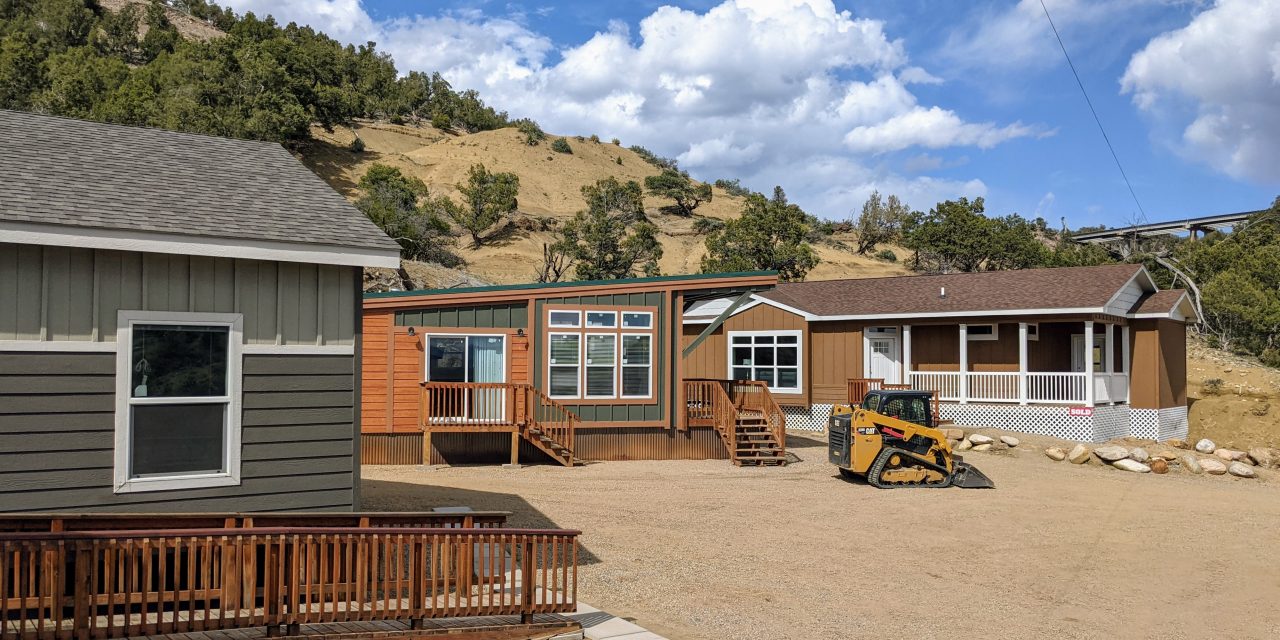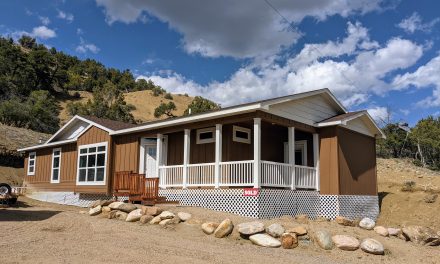Buying a new mobile home and searching for the right community? Moving to a mobile home on an existing lot? Planning to relocate your existing mobile home? Regardless of your unique situation, knowing what to expect when it comes to leasing land will give you a head start on what can be a confusing situation.
What is mobile home park lot rent?
Many mobile home parks (sometimes called “trailer parks” or “manufactured home communities”) charge a lot or site rent. This means that, though you may own (or be paying in installments for) the home itself, you are required to pay rent for the land underneath your home. Rents are paid monthly to the park, usually a for-profit company. These rents are not standardized and vary greatly depending on local real estate market conditions.
Your lot rent may only go to leasing the land your home sits on, but, in many cases, a percentage of lot rent goes to the upkeep of the neighborhood, including maintenance and landscaping. Sometimes these fees cover utilities, like water, sewer, and electricity. Sometimes, park-wide utilities, like garbage collection, or services, like cable TV are subsidized by the tenant’s lot rent.
Manufactured home communities tend to have relatively low rates of capital expenditure required to operate them. The tenants (leasing the underlying land) own their own homes and are responsible for the costs of keeping up the maintenance on their homes. The community owners are responsible for costs related to infrastructure (gas, sewer, water, electric) and, typically, the common areas within the community like pools, playgrounds, and clubhouses. Otherwise, when a community owner assumes responsibility for both by renting both the underlying land and the home, it’s akin to operating a horizontal apartment complex.
The bottom line is always to ask your park owner, “What does lot rent pay for?”. You may be surprised at the amenities included or lack of them, or you may be glad to know of extra fees (such as having pets) before they sneak up on you. Always do your due diligence.






how is it possible for a mobile home community to charge a pet deposit to a resident if they own their mobile home animals arent permitted in common areas Do they expect an animal under 15 pounds to to do $250 worth of damage to the grass?
Pet deposits are often required at some communities to ensure that residents’ pets do not cause damage to the property or become a nuisance to other residents. These deposits are intended to provide security for the property owner in the event that there is any damage caused by the pet, such as scratches on the walls or floors, or excessive barking. The deposit is typically returned to the resident at the end of the tenancy, provided that there has been no damage or other issues caused by the pet. In some cases, the deposit may be used to cover the costs of any necessary repairs or cleaning after the pet has left the property. The requirement of a pet deposit is a common practice in rental properties and is designed to protect both the property and the other residents from any potential negative impact caused by pets.
I’m looking to rent a spot for a 5th wheel, please advise if this service is available. I can be reached at 831-406-2805.
Tina, what location (city & state or zip code) are you looking?
I’m looking for a location in Columbia SC to place a new double wide trailer
If you are looking for a community to place your home, use use our map-based search (on desktop only, not yet available on mobile devices) to find communities in Columbia, SC and then contact the community to see if they have lot vacancies.
I am looking for a place to live to rent I was wondering about the Pet Policy
Hi Shannon,
When searching for a place to rent, it’s important to consider the pet policy of each community, especially if you have pets. Pet policies can vary between landlords and management companies. To find out the pet policy of a specific community, it’s best to contact the park owner(s) and ask them directly. They can provide you with the most accurate and up-to-date information regarding their policies. Additionally, park websites often include information about whether pets are allowed, as well as any associated fees or restrictions.